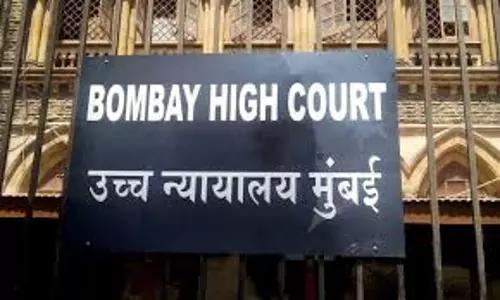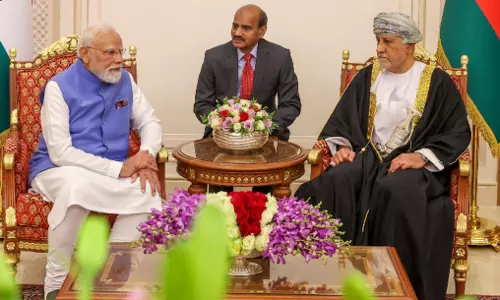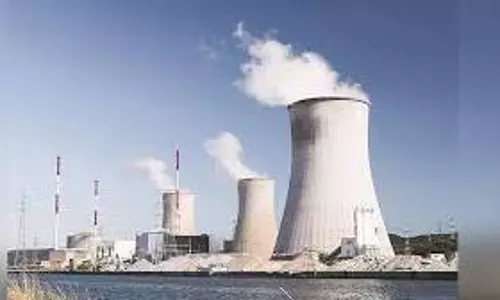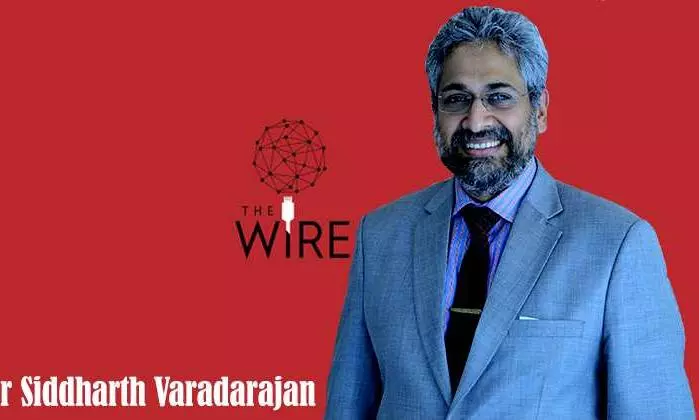
The Wire editor unearths what Modi Govt hides beneath demolished homes and patriotism
text_fieldsAs the country witnessed yet another brutal terror attack, which left at least 26 tourists dead and many injured at the Baisaran meadows in Pahalgam, Kashmir, on April 22, questions were raised from various quarters about the assurances given by the Narendra Modi-led NDA government at the Centre regarding security in the valley.
Siddharth Varadarajan, Founding Editor of The Wire, poignantly criticises the government’s flawed assurances and its shifting of blame to the people, questioning their patriotism.
Varadarajan notes that, despite years of claiming terrorism had been reduced due to the abrogation of Article 370 and ‘surgical strikes,’ the recent attack exposed significant weaknesses in securing vulnerable areas like tourist destinations. While terrorists are responsible for their actions, Varadarajan argues that the government's failure to ensure basic security in such areas must not be overlooked.
Varadarajan highlighted Union Minister Piyush Goyal's remark, ‘Until 140 crore Indians don’t make nationalism and patriotism their supreme duty (‘param dharm’), these types of incidents will continue to trouble the country,’ blaming its citizens and even questioning their patriotism, as an attempt to effectively deflect the government’s accountability for its failures.
Varadarajan also draws attention to the government's controversial tactic of collective punishment, taking Israel’s tactic of routinely punishing the Palestinians as an example, drawing on their being 'occupied people,' inflicting collective punishment on 'poor Kashmiri families,' suggesting Modi has no regret in making his own citizens homeless in order to be exonerated from being blamed for 'his hubris and incompetence in claiming a premature victory over terrorism
“In demolishing home after home, however, he has exposed not just his own contempt for the rule of law—as recently reiterated by the Supreme Court—but also the discriminatory nature of official policy in which the religion of terror victims and of their attackers determines how the state will respond,” Varadarajan writes.
This, he asserts, is not only a violation of legal principles but also reflects a politically motivated response influenced by the religious identities of both the victims and the perpetrators.
Varadarajan further criticises the inconsistency in the government's actions, pointing to the treatment of accused terrorists in past cases, such as the Malegaon bombings, where no similar punitive measures were taken.
He contrasts this with the situation in Kashmir, where the homes of individuals with minimal involvement in the attack were demolished. For example, despite her involvement in the 2008 Malegaon bombings, Pragya Thakur’s home was never demolished, and she was even given a BJP ticket and elected to parliament. This, Varadarajan argues, exemplifies the selective application of justice, where the religious background of those involved seems to influence the state's response.
The author warns that the government's focus on performative justice, such as demolishing homes, does not address the deeper issues at hand. Varadarajan stresses that these actions are a distraction from the failure to apprehend those responsible for terrorism and to tackle its root causes effectively.
He recalls the lack of justice in the 2000 Chittisinghpora massacre, where no perpetrators were brought to trial despite the state's efforts to cover up the truth by murdering innocent civilians.
As Varadarajan highlights, the Chhittisinghpora massacre remains unresolved because the army and police quickly picked up five civilians from Anantnag, dressed them in fatigues, and murdered them in cold blood, claiming they were the terrorists responsible for the killings of Sikh civilians.
Despite the brutality, the CBI later investigated the case and charged the officers involved. However, none of the accused soldiers faced trials or had their homes demolished, a stark contrast to the treatment of those accused of terror in Kashmir. The case is a painful reminder of India's failure to uphold justice, as the soldiers responsible were never tried, and the victims' innocence remains undisputed.


















